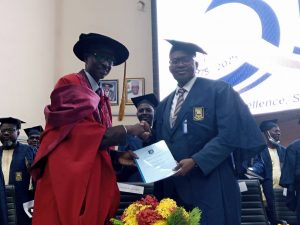UNILORIN Don Warns Against Antibiotics Misuse, Says It Could Trigger a Global Health Crisis

A Professor of Clinical Microbiology at the University of Ilorin, Ali Ajibola Akanbi II, has raised alarm over the growing threat of antimicrobial resistance (AMR), describing it as a “silent pandemic” that could render modern medicine ineffective if urgent actions are not taken.
Delivering the University’s 288th inaugural lecture titled “The Pandemic of Antimicrobial Resistance and the Experience of a Clinical Microbiologist,” Professor Akanbi painted a stark picture of a future where common infections become untreatable due to the reckless misuse of antibiotics.
“Antimicrobial resistance is not a future problem; it is already with us,” he warned. “If we continue using antibiotics the way we currently do—without restraint or proper oversight—even the most potent drugs will soon fail us.”
He highlighted that AMR is driven by multiple factors, including the abuse of antibiotics by individuals, self-medication, over-prescription by health workers, and widespread use in agriculture and animal health.
According to the medical microbiologist, public awareness is crucial to reversing the trend. “The general public, health care providers, and those in the agricultural sector must be adequately educated about the dangers of misuse and the importance of following prescribed treatments,” he said.
Professor Akanbi advocated for a national antibiotic stewardship programme to ensure antibiotics are used judiciously, with the right drug, dosage, and duration.
He added that combination therapies—using multiple antibiotics with different mechanisms—could help tackle resistance but warned against indiscriminate use.
He also highlighted the role of probiotics and prebiotics in building a healthy gut microbiome, which can reduce reliance on antibiotics. “The less we need antibiotics, the lower the chance of resistance developing,” he explained.
Another major strategy, he said, is surveillance. “We must develop an efficient system for tracking resistance patterns in both humans and animals. This will help guide treatment decisions and inform the development of new antimicrobials,” he said.
On environmental controls, Professor Akanbi stressed the need to regulate how antibiotics enter ecosystems, particularly through agricultural runoff, wastewater, and improper waste disposal.
“Managing the environment is key to reducing the selection pressure that fuels resistance,” he added.
He called for stronger government action, including legislation to prohibit over-the-counter sales of antibiotics. “Enacting laws that stop the sale of antibiotics without prescriptions is not optional. It’s a necessity,” he emphasized.
Professor Akanbi also urged the public to play their part. “We all have a role to play—consult a doctor before using antibiotics, never share drugs, and always complete prescribed doses. Prevention is better than cure, and in this case, prevention might be our only hope,” he warned.
He concluded by calling for a unified global response involving researchers, governments, pharmaceutical companies, and international health bodies. “Only a coordinated, multi-sectoral approach can help us avert this looming catastrophe,” he said.
============